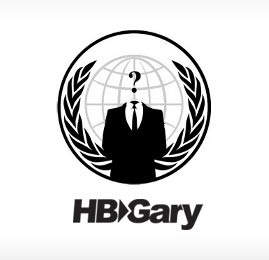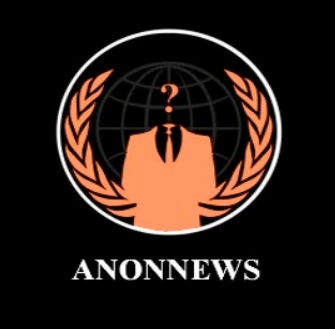 As it becomes more and more clear the United States government is accelerating efforts to establish a policy and improve the government's ability to respond to cyber attacks, the openness and freedom of the Internet is more and more at stake. Also, specific to an organization like WikiLeaks, the government may be on its way to crafting legal authority to take WikiLeaks out with DDoS or DNS attacks. (Of course, many already believe the US was behind the attack on the WikiLeaks website that took place just as WikiLeaks was beginning to release the US State Embassy cables.)
As it becomes more and more clear the United States government is accelerating efforts to establish a policy and improve the government's ability to respond to cyber attacks, the openness and freedom of the Internet is more and more at stake. Also, specific to an organization like WikiLeaks, the government may be on its way to crafting legal authority to take WikiLeaks out with DDoS or DNS attacks. (Of course, many already believe the US was behind the attack on the WikiLeaks website that took place just as WikiLeaks was beginning to release the US State Embassy cables.)
 Marcy Wheeler, guest on the podcast this week, gets into this saying, "If you agree that bringing down speech is a legitimate cyber warfare tactic and if you agree that WikiLeaks was an attack on defense infrastructure or maybe State Department infrastructure, then you can easily get to the justification of okay we can do a DDOS attack on WikiLeaks," and finds the US government may be working to create legal justification for such attacks.
Marcy Wheeler, guest on the podcast this week, gets into this saying, "If you agree that bringing down speech is a legitimate cyber warfare tactic and if you agree that WikiLeaks was an attack on defense infrastructure or maybe State Department infrastructure, then you can easily get to the justification of okay we can do a DDOS attack on WikiLeaks," and finds the US government may be working to create legal justification for such attacks.
Wheeler blogs at Firedoglake as Emptywheel. She primarily covers the national security establishment in the United States and has written many blog posts on WikiLeaks, Bradley Manning and cyber security, with her most recent post on all of this being, "The Cyberwar Campaign against Jihadi Literature and WikiLeaks."
 New US International Cybersecurity Strategy Aims to Institute 'Rule of Law' on the Internet
New US International Cybersecurity Strategy Aims to Institute 'Rule of Law' on the Internet
The United States officially launched its international cyber security strategy in a White House event on Monday, May 16. Secretary of State Hillary Clinton joined by the following administration officials: John Brennan, the president's counterterrorism and homeland security adviser; Howard Schmidt, White House cybersecurity coordinator; Attorney General Eric Holder; Secretaries Janet Napolitano of Homeland Security and Gary Locke of Commerce; and Defense Deputy Secretary William Lynn.
The presentation of the cyber security presented several principles, outlined the approach the US intends to take in the further development of cyber security protections, and indicated how the US might use the Internet to preserve its status as a superpower in the world.
Featured during the presentation were seven principles, which appear in the framework: economic engagement, protecting networks, law enforcement, military cooperation, multi-stakeholder Internet governance, international development and Internet freedom. Within the presentation, Clinton sought to explain that cyber crime, Internet freedom and network security could no longer be “disparate stovepipe discussions.”
At no time during the launch of the strategy was WikiLeaks mentioned. Not even Clinton bothered to mention it, despite the fact that she heads a State Department that had their department’s classified information leaked and published by media organizations and continue to have new information published each day.
 Update: Edited podcast episode is now posted.
The fourth episode of this weekly podcast, which looks at stories related to WikiLeaks from the past week, featured guest Kevin Zeese, who is with the Bradley Manning Support Network and WikiLeaksIsDemocracy.org, which is a project dedicated to preventing the prosecution and extradition of Assange to the United States. The podcast also welcomed CMN News correspondent Chris Novembrino, who provided commentary throughout the episode.
Update: Edited podcast episode is now posted.
The fourth episode of this weekly podcast, which looks at stories related to WikiLeaks from the past week, featured guest Kevin Zeese, who is with the Bradley Manning Support Network and WikiLeaksIsDemocracy.org, which is a project dedicated to preventing the prosecution and extradition of Assange to the United States. The podcast also welcomed CMN News correspondent Chris Novembrino, who provided commentary throughout the episode.
The release of tens of thousands of emails from executives working for the classified cybersecurity services firm HBGary, which was found to have proposed plans to target WikiLeaks last week, shows exactly what members of the firm meant when they discussed using fake documents to sabotage or target WikiLeaks.
(If you are unaware of the story that has been unfolding, here is previous coverage, which has appeared on WL Central.)
A search through the database for emails that discuss “WikiLeaks” reveals one email on “stopping WikiLeaks.” It links to a Wordpress blog called “Godel’s Lost Letter and P=NP,” which covers stories related to technology and theories of computing.
 The group of hacktivists known as Anonymous has released tens of thousands of emails from HBGary, a provider of classified cybersecurity services to the Department of Defense, Intelligence Community and other US government agencies. Anonymous leaked the emails after HBGary’s CEO Aaron Barr plotted to infiltrate Anonymous and uncover the identities of individuals within the group and after it was found out that HBGary and two other firms had been actively plotting to sabotage and target WikiLeaks.
The group of hacktivists known as Anonymous has released tens of thousands of emails from HBGary, a provider of classified cybersecurity services to the Department of Defense, Intelligence Community and other US government agencies. Anonymous leaked the emails after HBGary’s CEO Aaron Barr plotted to infiltrate Anonymous and uncover the identities of individuals within the group and after it was found out that HBGary and two other firms had been actively plotting to sabotage and target WikiLeaks.
Additionally, it has been reported that Anonymous has obtained Stuxnet access. That is because the emails, now public, were improperly secured. A cybersecurity service did not protect itself from the possibility of infiltration from hackers.
 Two data intelligence firms that decided to cooperate with HBGary’s plot to sabotage WikiLeaks have severed ties. Berico Technologies severed ties in the afternoon on February 11 and early in the morning on February 11 Palantir Technologies severed all ties and issued an apology.
Two data intelligence firms that decided to cooperate with HBGary’s plot to sabotage WikiLeaks have severed ties. Berico Technologies severed ties in the afternoon on February 11 and early in the morning on February 11 Palantir Technologies severed all ties and issued an apology.
Dr. Alex Karp, co-founder and CEO of Palantir Technologies, apologized, saying according to the Tech Herald:
“I have made clear in no uncertain terms that Palantir Technologies will not be involved in such activities. Moreover, we as a company, and I as an individual, always have been deeply involved in supporting progressive values and causes. We plan to continue these efforts in the future…
 (update below)
(update below)
HBGary Federal, provider of classified cybersecurity services to the Department of Defense, Intelligence Community and other US government agencies, has opted over the past months to go to war with the group of WikiLeaks supporters known as Anonymous. The Tech Herald reported today on HBGary Federal and two other data intelligence firms “strategic plan” for an attack against WikiLeaks.
The company is considered to be “a leading provider of best-in-class threat intelligence solutions for government agencies and Fortune 500 organizations.” It provides "enhanced threat intelligence" so "the federal government can better protect our national cyber infrastructure."
Theme by Danetsoft and Danang Probo Sayekti inspired by Maksimer